
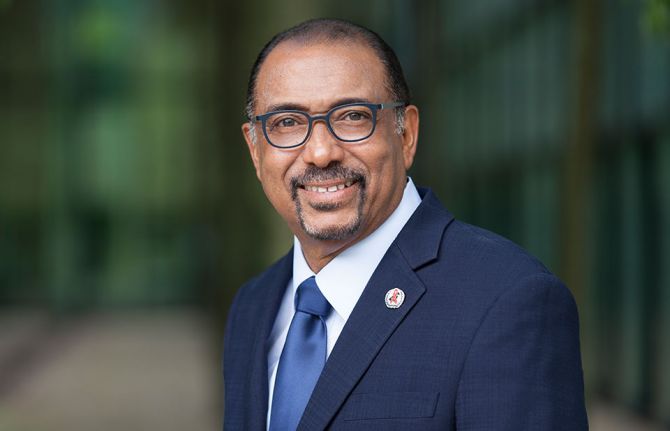
Press Statement
Message from UNAIDS Executive Director following a meeting with civil society leaders in South Africa
10 May 2018 10 May 2018GENEVA, 10 May 2018— During my recent visit to South Africa, I listened carefully to you, I heard you. The HIV epidemic is inextricably linked to sexual and gender-based violence and the two can never be separated. We need the passion of advocates to move issues forward.
Let us come together and address sexual harassment and gender inequality. A transformative agenda to address sexual harassment and gender inequality is urgent. Let us work together towards it, let us spend our time and energy on this important agenda.
Speaking truth to power is at the core of civil society existence, therefore civil society should never feel threatened to silence because of fear of loss of resources (financial and otherwise). You are an autonomous and critical contributor to the AIDS response, we must preserve that always. Women and men at UNAIDS, in all their diversity, appreciate the support of civil society for standing together with them in solidarity, and in support of women’s equality and rights.
Let us unite the HIV movement around these issues. Working together, we can define a vibrant movement that addresses the intersections between HIV, sexual harassment and gender inequality. In collaboration with you, I am calling for a women’s meeting in Africa to forge the way forward on ending sexual harassment.
I heard you. I listened to all of you. I will act.
Michel Sidibé
Executive Director of UNAIDS
Under-Secretary-General of the United Nations
UNAIDS
The Joint United Nations Programme on HIV/AIDS (UNAIDS) leads and inspires the world to achieve its shared vision of zero new HIV infections, zero discrimination and zero AIDS-related deaths. UNAIDS unites the efforts of 11 UN organizations—UNHCR, UNICEF, WFP, UNDP, UNFPA, UNODC, UN Women, ILO, UNESCO, WHO and the World Bank—and works closely with global and national partners towards ending the AIDS epidemic by 2030 as part of the Sustainable Development Goals. Learn more at unaids.org and connect with us on Facebook, Twitter, Instagram and YouTube.
Press centre
Download the printable version (PDF)

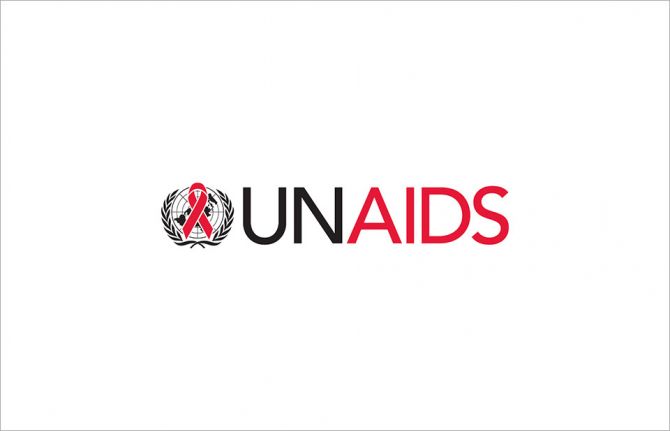
Press Statement
UNAIDS Programme Coordinating Board Bureau releases terms of reference for work of the Independent Expert Panel on harassment
07 May 2018 07 May 2018GENEVA, 7 May 2018—The scope and nature of the work of the Independent Expert Panel on prevention of and response to harassment, including sexual harassment, bullying and abuse of power at the UNAIDS Secretariat has been decided upon by the UNAIDS Programme Coordinating Board (PCB) Bureau following consultations with the three constituencies of the PCB. The PCB Bureau is composed of the United Kingdom, China, Algeria, the PCB nongovernmental organization delegation and the Office of the United Nations High Commissioner for Refugees, representing the UNAIDS Cosponsors. The agreed terms of reference will guide the panel’s work over the coming months.
Under the terms of reference, the panel will:
- Review the current situation in the UNAIDS Secretariat with regard to harassment, including sexual harassment, bullying and abuse of power and retaliation—including by looking back over the past seven years—to assess the organizational culture at headquarters and the regional and country offices.
- Evaluate the effectiveness of existing policies and procedures to prevent and address harassment, including sexual harassment, bullying, retaliation and abuse of power in the UNAIDS Secretariat workplace.
- Recommend a comprehensive set of prioritized measures on organizational culture, policies and fair and due process procedures with respect to harassment, including sexual harassment, and bullying, retaliation and abuse of power in the workplace.
The panel will review all relevant areas. It will look at UNAIDS’ leadership and culture, policies and strategies to prevent harassment and the reasons for the low levels of formal reporting of harassment. In addition, the panel will review the investigation processes applied by the UNAIDS Secretariat and will make recommendations on how to ensure that these are fit for purpose and fair. The panel will also make recommendations to ensure that the UNAIDS Secretariat has sufficiently strong internal systems to identify unacceptable behaviour and take swift action in response to it and will make recommendations to ensure that accountability is visible and ensured at all levels of UNAIDS.
In its work, the panel will draw from lessons learned and best practices from other United Nations organizations and other partners. The panel is independent of UNAIDS’ senior management and in its work will consult with United Nations Member States, PCB nongovernmental organizations, UNAIDS Cosponsors and former and current UNAIDS staff.
“I fully support the panel’s work and how the UNAIDS Programme Coordinating Board has conceptualized the panel as one composed of independent experts. I will provide whatever is needed to ensure that the Board leadership can continue to run a transparent process. I look forward to the panel’s report and pledge to swiftly implement its recommendations,” said Mr Sidibé.
Called for in February 2018 by Mr Sidibé, the panel is one of several measures designed to strengthen the culture of zero tolerance for harassment, abuse and unethical behaviour at UNAIDS. Other measures announced in February include the five-point plan, which aims to ensure that inappropriate behaviour and abuse of authority are identified early on, that measures taken are properly documented and that action to be taken follows due process and is swift and effective. The five-point plan also calls for enhanced protections for plaintiffs and whistle-blowers. The recommendations of the panel are expected to influence the implementation of the five-point plan.
The panel will comprise up to five independent experts. It will deliver its final report with its recommendations to the 43rd meeting of the PCB in December 2018.
UNAIDS
The Joint United Nations Programme on HIV/AIDS (UNAIDS) leads and inspires the world to achieve its shared vision of zero new HIV infections, zero discrimination and zero AIDS-related deaths. UNAIDS unites the efforts of 11 UN organizations—UNHCR, UNICEF, WFP, UNDP, UNFPA, UNODC, UN Women, ILO, UNESCO, WHO and the World Bank—and works closely with global and national partners towards ending the AIDS epidemic by 2030 as part of the Sustainable Development Goals. Learn more at unaids.org and connect with us on Facebook, Twitter, Instagram and YouTube.

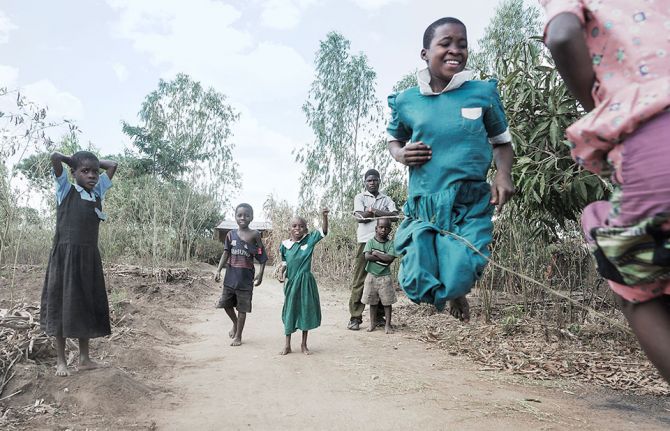
Press Statement
UNAIDS calls for bold action to end TB and AIDS
23 March 2018 23 March 2018GENEVA, 23 March 2018—Ahead of World TB Day 2018, UNAIDS is calling on all partners to take unprecedented and bold action to advance efforts to end tuberculosis (TB) and AIDS by 2030.
TB continues to be the top infectious killer worldwide, claiming more than 4500 lives a day. TB is also the leading cause of death among people living with HIV, causing one in three AIDS-related deaths. In 2016, 1.7 million people died from TB, including around 374 000 people living with HIV.
“The world has the resources to end the interlinked epidemics of tuberculosis and HIV, but political commitment and country action are lacking,” said Michel Sidibé, UNAIDS Executive Director. “Political, religious and civil society leaders need to step up to guarantee everyone the right to breathe, to live free from tuberculosis and AIDS.”
TB is preventable and curable; however, persistent challenges remain. Many of these challenges are also faced by the HIV response and can be effectively addressed if programmes are integrated. They include unequal access to services, with the most marginalized people still out of reach, the need to access education, housing and basic services to prevent, diagnose and treat TB and HIV through local health-care services and community health-care workers, the need to strengthen health systems and the urgent need to mobilize resources in programming, research and development.
To address the challenges and push forward the response to TB and HIV, UNAIDS has outlined five important actions for partners:
- Give a new impetus to the response to TB and HIV by impelling political, religious and civil society leaders to champion the universal right to live free from TB and HIV, building on existing rights and health and social movements.
- Empower communities to demand their right to health. Affected communities must call on governments to improve living standards, including by accessing nutritious food, breathing clean air, completing their education and fostering an enabling economic environment, all of which will help to reduce the burden of TB and HIV.
- Ensure rights-promoting and non-discriminatory service delivery for all, especially for people at higher risk of TB and HIV, such as children and marginalized populations, to protect them against catastrophic health expenditures in the context of universal health coverage. Thus, duty of care extends beyond health to include safe workplaces and places of detention.
- Engage ministers of finance to approach health as an investment, not an expenditure. While the above actions carry some financial outlays, assessments of returns on investment in health have demonstrated their long-term value to societies and economies. An efficient and effective response to HIV and TB will require working across all ministries and sectors to mobilize sufficient domestic financing to strengthen health systems.
- Innovate for new medicines and vaccines. Greater partnerships between the public and private sectors are urgently needed to accelerate innovation that leads to the discovery, development and rapid uptake of new tools to prevent and treat TB and HIV, as are strategies for shorter and less-toxic TB regimens.
Ending the global TB and HIV epidemics is possible. HIV is preventable and effective and affordable treatment is available. TB is preventable, treatable and in most cases curable.
Progress has been made—deaths from TB among people living with HIV declined by 37% between 2005 and 2016 as prevention, testing and treatment have improved and increased. However, there is still much more work to be done.
In September 2018, world leaders will come together at the United Nations in New York, United States of America, for the first-ever United Nations General Assembly High-Level Meeting on Tuberculosis. This meeting will be an important opportunity for countries to adopt a progressive, visionary and actionable political declaration on TB.
“The United Nations High-Level Meeting on Tuberculosis could provide the political, social and financial momentum needed to end TB,” said Mr Sidibé. “This year could be the most important since Robert Koch discovered the cause of TB136 years ago, but only if we all show leadership.”
UNAIDS urges all partners to ensure that TB is elevated on global, regional, national and subnational political and social agendas, that TB and HIV are addressed in unison and that partners combine robust efforts to end TB and HIV by 2030 as part of the Sustainable Development Goals.
UNAIDS
The Joint United Nations Programme on HIV/AIDS (UNAIDS) leads and inspires the world to achieve its shared vision of zero new HIV infections, zero discrimination and zero AIDS-related deaths. UNAIDS unites the efforts of 11 UN organizations—UNHCR, UNICEF, WFP, UNDP, UNFPA, UNODC, UN Women, ILO, UNESCO, WHO and the World Bank—and works closely with global and national partners towards ending the AIDS epidemic by 2030 as part of the Sustainable Development Goals. Learn more at unaids.org and connect with us on Facebook, Twitter, Instagram and YouTube.
Publication
Infographics
What UNAIDS does on...
Multimedia
Press centre
Download the printable version (PDF)

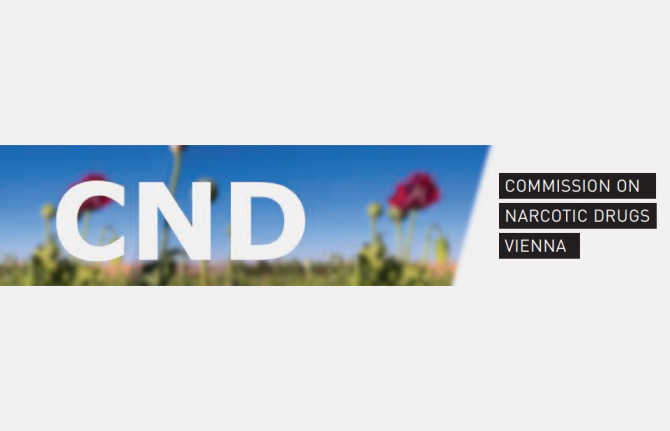
Press Statement
61st Session of the Commission on Narcotic Drugs
15 March 2018 15 March 2018Statement by UNAIDS on the occasion of the 61st Session of the Commission on Narcotic Drugs, Vienna, 15 March 2018
Madam President, excellencies, civil society partners and colleagues, thank you for this opportunity to address the 61st Session of the Commission on Narcotic Drugs (CND).
UNAIDS recognizes that the overarching purpose of drug control is first and foremost to ensure the health, well-being and security of individuals, while respecting their human rights at all times. People who use and inject drugs are among the groups at highest risk of exposure to HIV, but remain marginalized and out of reach of health and social services.
Unfortunately, since our statement during the 60th Session of CND last year, the statistics on people who use drugs have not improved. Almost 12 million people worldwide inject drugs, of whom one in eight (1.6 million) are living with HIV and more than half (6.1 million) are living with hepatitis C.
A total of 1.3 million people are living with both hepatitis C and HIV—in other words, more than 80% of people who inject drugs and who are living with HIV are living with a coinfection. According to the 2017 World drugs report, there are now 222 000 hepatitis C related annual deaths and 60 000 AIDS-related deaths among people who inject drugs.
People who use drugs are 24 times more likely to be living with HIV than people in the general population, and among prisoners HIV prevalence is up to five times higher.
And while we are seeing the number of new HIV infections going down in almost all population groups, incidence among people who use drugs is going up. Global new HIV infections among people who inject drugs rose by 33% from 2011 to 2015.
The evidence on harm reduction is overwhelming. Harm reduction works—it works as treatment and as prevention, and it improves the health and social well-being of people and societies. To put it in simple terms, harm reduction saves lives.
Yet the coverage of harm reduction programmes remains insufficient.
We also know that policies that criminalize and marginalize people who inject drugs are failing to reduce new HIV infections.
Of 158 countries where injecting drug use is reported, over half (78) do not offer opioid substitution therapy and more than a third (68) still do not provide needle–syringe programmes.
Between 2010 and 2014, only 3.3% of HIV prevention funds went to programmes for people who inject drugs. This in spite of the fact that we know that harm reduction approaches that prioritize people’s health and human rights work and are cost-effective.
Evidence supports the need for a shift in the global approach to drug use. The UNAIDS report Do no harm: health, human rights and people who use drugs shows what works to reduce the impact of HIV and other harms related to drug use. Countries that have moved away from laws and policies that are harmful to people who use drugs and that have increased investment in harm reduction have reduced new HIV infections and improved health outcomes.
This is not a new message from UNAIDS. But it is a message that we will continue to share.
UNAIDS supports a people-centred, public health approach to reduce HIV, hepatitis C and other vulnerabilities among people who inject drugs. A comprehensive package of interventions, including needle–syringe programmes and opioid substitution therapy, provided in a legal and policy environment that enables access to services, prevents infections and reduces deaths from AIDS-related illnesses, tuberculosis, viral hepatitis and sexually transmitted infections.
And the social benefits exceed the treatment and prevention costs. Putting in place services without changing laws and policies will not work. Legal and policy reform must be based on evidence.
Ending punitive and repressive approaches and protecting health and human rights will guarantee greater access to services for the people most in need. It will also greatly reduce the harms of drug use. An enabling and legal environment must be accompanied by investments in evidence-informed services.
If the annual investment in harm reduction in low- and middle-income countries increases to US$ 1.5 billion by 2020, just a fraction of the estimated US$ 100 billion already spent each year to reduce the supply of and demand for narcotic drugs, we would be able to reach 90% of people who inject drugs with HIV prevention and harm reduction services.
As we implement the Sustainable Development Goals, harm reduction must be an integral component of universal health coverage.
Drug policies and programmes must be people-centred, evidence-informed and based on human rights. Extrajudicial killings and other violence against people who use drugs must end.
We call on all United Nations Member States to redouble their efforts to fulfil their commitments made in the 2016 Political Declaration on Ending AIDS and the Special Session of the United Nations General Assembly on the World Drug Problem outcome documents to intensify national efforts to end the AIDS epidemic and achieve the Sustainable Development Goals.
We need approaches that put people at the centre and restore dignity to people who use drugs. We cannot end the AIDS epidemic if we do not end it among people who use drugs.
UNAIDS
The Joint United Nations Programme on HIV/AIDS (UNAIDS) leads and inspires the world to achieve its shared vision of zero new HIV infections, zero discrimination and zero AIDS-related deaths. UNAIDS unites the efforts of 11 UN organizations—UNHCR, UNICEF, WFP, UNDP, UNFPA, UNODC, UN Women, ILO, UNESCO, WHO and the World Bank—and works closely with global and national partners towards ending the AIDS epidemic by 2030 as part of the Sustainable Development Goals. Learn more at unaids.org and connect with us on Facebook, Twitter, Instagram and YouTube.
Commission on Narcotic Drugs
Press centre
Download the printable version (PDF)


Press Statement
UNAIDS welcomes preliminary trial results that could offer women a new HIV prevention option
07 March 2018 07 March 2018GENEVA, 7 March 2018—UNAIDS welcomes mid-way results from two studies that show that a vaginal ring releasing long-acting antiretroviral medicine to prevent HIV is up to 54% effective in preventing HIV infections among women. The ring, which is replaced monthly, slowly releases the antiretroviral medicine dapivirine and could give women an additional HIV prevention option that is discreet and that they can control.
“These results are significant,” said Michel Sidibé, Executive Director of UNAIDS. “Structural, behavioural and biological factors make women more vulnerable to HIV infection, so it is extremely important that they have the opportunity to protect themselves from HIV, on their own terms.”
The interim results are from two large open-label studies—studies in which the participants know which medicine is being used; that is, no placebo is used—conducted in South Africa and Uganda. The trails enrolled women between the ages of 20 and 50 years.
The HOPE trial, which began in August 2016 and enrolled more than 1400 women by October 2017—the time of the interim review—found a 54% reduction in HIV risk. This means that the rate of new HIV infections was 1.9 women newly infected for every 100 participants in a given year; based on statistical modelling, the researchers determined that the rate of new infections would have been 4.1 for every 100 had the women not been offered the ring. The DREAM trial, which enrolled 940 women from July 2016, had similar findings, with a 54% reduction in the HIV incidence rate. The final results from both studies are expected in 2019.
Adherence was shown to be high in both of the trials, although the measures of adherence were not able to determine whether the women used the ring all of the time, most of the time or just some of the time. The DREAM study showed that more than 90% of the women in the study used the ring at least some of the time, based on residual drug levels, and the HOPE study showed that 89% of returned rings indicated that the ring was used at least some of the time within the previous month.
This is the first time that efficacy of more than 50% has been observed in HIV prevention trials involving only women. Two previous phase III trials presented in 2016—ASPIRE/MTN-020 and the Ring Study/IPM 027—which did include a placebo group showed only modest protection (30%) against HIV infection for women. Women from both ASPIRE and the Ring Study were included in the HOPE and DREAMS trials.
Other scientific advances in HIV prevention presented in recent years include the PROUD and IPERGAY studies, which in 2015 reported an 86% reduction in HIV acquisition among HIV-negative men who took antiretroviral medicines to prevent HIV, the 2011 HPTN 052 trial announcement, which showed that early initiation of antiretroviral therapy can reduce the risk of transmission to an uninfected partner by 96%, and the 2011 Partners PrEP and TDF2 studies, which showed that a daily antiretroviral pill taken by people who do not have HIV infection can reduce their risk of acquiring HIV by up to 73%. The South Africa Orange Farm Intervention Trial, funded by the French Agence Nationale de Recherches sur le SIDA (ANRS) and published in 2005, demonstrated more than a 60% reduction in HIV infections among circumcised men.
“These important breakthroughs show just how critical it is to continue to invest in research and development into new and effective HIV prevention options,” said Mr Sidibé. The latest reports show that in 2016 funding for HIV prevention research and development was its lowest level in a decade, with no indications that investments are set to increase.
UNAIDS stresses that despite the recent scientific discoveries, there is still no single method that is fully protective against HIV. To end the AIDS epidemic, UNAIDS strongly recommends a combination of HIV prevention options. These can include the correct and consistent use of male or female condoms, waiting longer before having sex for the first time, having fewer partners, voluntary medical male circumcision, avoiding penetrative sex, the use of pre-exposure prophylaxis for people at higher risk of HIV infection and ensuring that all people living with HIV have immediate access to antiretroviral medicine.
In 2016/2017* an estimated:
*20.9 million people were accessing antiretroviral therapy in June 2017
36.7 million [30.8 million–42.9 million] people globally were living with HIV
1.8 million [1.6 million–2.1 million] people became newly infected with HIV
1.0 million [830 000–1.2 million] people died from AIDS-related illnesses
UNAIDS
The Joint United Nations Programme on HIV/AIDS (UNAIDS) leads and inspires the world to achieve its shared vision of zero new HIV infections, zero discrimination and zero AIDS-related deaths. UNAIDS unites the efforts of 11 UN organizations—UNHCR, UNICEF, WFP, UNDP, UNFPA, UNODC, UN Women, ILO, UNESCO, WHO and the World Bank—and works closely with global and national partners towards ending the AIDS epidemic by 2030 as part of the Sustainable Development Goals. Learn more at unaids.org and connect with us on Facebook, Twitter, Instagram and YouTube.
Press centre
Download the printable version (PDF)

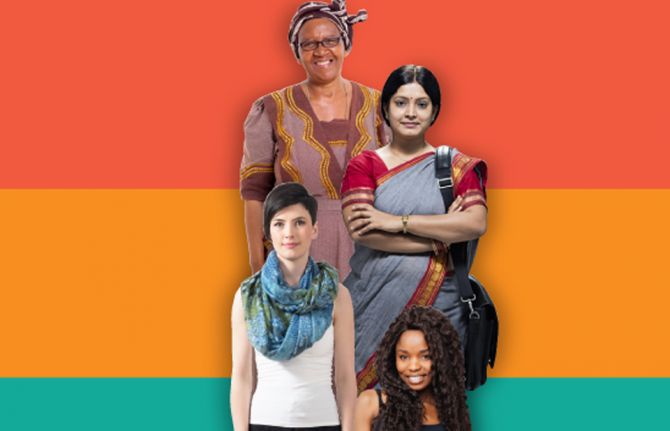
Press Statement
International Women’s Day message
08 March 2018 08 March 20188 March 2018
Michel Sidibé
Executive Director of UNAIDS
Under-Secretary-General of the United Nations
On International Women’s Day, the world is celebrating the power of women’s organizations and activists to advance women’s right to health, gender quality and women’s empowerment. Women’s empowerment and leadership is critical to ensuring success across all 17 of the Sustainable Development Goals.
Women and girls continue to be disproportionately affected by HIV. Globally, young women are twice as likely to become infected with HIV as their male counterparts. In sub-Saharan Africa, three out of four new HIV infections among 15–19-year-olds are among young women. Globally, nearly 30% of women experience physical and/or sexual violence from an intimate partner at least once in their lifetime.
But change is happening. This year, International Women’s Day is being celebrated at a time when there is a much-needed spotlight on issues of sexual harassment across multiple sectors, including the private sector, governments, international organizations and civil society. Movements such as #MeToo are challenging the behaviours and beliefs that perpetuate gender inequality, gender-based violence and sexual harassment. UNAIDS reaffirms its commitment to zero tolerance for sexual harassment. UNAIDS holds itself accountable to the same standards of ethics, equity and respect that it promotes and demands of others.
More and more voices are joining to challenge the sociocultural, economic and political inequalities that make women and girls more vulnerable to HIV. These changes are good for women and girls. We know that through enabling women and girls to fulfil their rights to health, to education and to self-determination, transformation becomes possible. HIV infections decline. Health improves. Education increases. Women and girls thrive.
These changes are good for communities, for families and for men and boys. Women and girls who are able to fulfil their rights are better able to work, to participate in civil society and government, to keep their families healthy and happy and to enjoy equitable gender relations.
It is clear that we can end the AIDS epidemic by 2030. But achieving that goal depends on advancing a social justice agenda that demands access to health services, education, employment, justice and political representation, free from discrimination and violence. The AIDS response and the people who drive it must be empowered and enabled to do so, in safe and equitable environments.
Change is happening, and the change is good.


Press Statement
UNAIDS’ Deputy Executive Director, Programme, not to seek renewal of his position
23 February 2018 23 February 2018GENEVA, 23 February 2018—UNAIDS’ Deputy Executive Director, Programme, Luiz Loures, has communicated his wish to the UNAIDS Executive Director not to seek the renewal of his position as Assistant Secretary-General of the United Nations and Deputy Executive Director of UNAIDS. Dr Loures will end his term as Deputy Executive Director at the end of March 2018.
The Executive Director of UNAIDS, Michel Sidibé, has accepted the decision and conveyed the decision to the Secretary-General of the United Nations. Mr Sidibé also thanked Dr Loures for his 22 years of dedicated service to UNAIDS.
UNAIDS
The Joint United Nations Programme on HIV/AIDS (UNAIDS) leads and inspires the world to achieve its shared vision of zero new HIV infections, zero discrimination and zero AIDS-related deaths. UNAIDS unites the efforts of 11 UN organizations—UNHCR, UNICEF, WFP, UNDP, UNFPA, UNODC, UN Women, ILO, UNESCO, WHO and the World Bank—and works closely with global and national partners towards ending the AIDS epidemic by 2030 as part of the Sustainable Development Goals. Learn more at unaids.org and connect with us on Facebook, Twitter, Instagram and YouTube.
Press centre
Download the printable version (PDF)

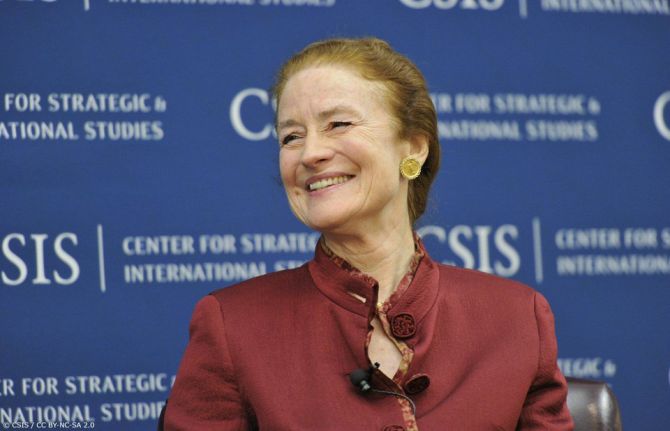
Press Statement
UNAIDS welcomes appointment of Henrietta Holsman Fore as Executive Director of UNICEF
23 December 2017 23 December 2017GENEVA, 23 December 2017—UNAIDS warmly welcomes the announcement by the United Nations Secretary-General that Henrietta Holsman Fore has been appointed as the new Executive Director of the United Nations Children’s Fund (UNICEF). Ms Fore is a champion of economic development, education, health and humanitarian assistance and was the first woman to serve as the Administrator of the United States Agency for International Development and as the Director of United States Foreign Assistance.
“We look forward to working closely with Henrietta Holsman Fore and continuing to collaborate with UNICEF on our common goals—stopping new HIV infections among children, ensuring access to HIV treatment and making sure that children living with and affected by HIV get the care and support they need,” said Michel Sidibé, Executive Director of UNAIDS.
UNICEF is a founding Cosponsor of UNAIDS and in 2011 joined UNAIDS, the United States President’s Emergency Plan for AIDS Relief and other partners to develop the Global Plan towards the elimination of new HIV infections among children by 2015 and keeping their mothers alive. The plan helped to significantly reduce new HIV infections among children in the countries most affected by HIV.
From 2010 to 2016 there was a 56% decline in new HIV infections among children in eastern and southern Africa. However, access to treatment for children continues to lag behind. Globally, just 43% of children living with HIV had access to life-saving antiretroviral therapy in 2016, compared to 54% of adults.
UNAIDS
The Joint United Nations Programme on HIV/AIDS (UNAIDS) leads and inspires the world to achieve its shared vision of zero new HIV infections, zero discrimination and zero AIDS-related deaths. UNAIDS unites the efforts of 11 UN organizations—UNHCR, UNICEF, WFP, UNDP, UNFPA, UNODC, UN Women, ILO, UNESCO, WHO and the World Bank—and works closely with global and national partners towards ending the AIDS epidemic by 2030 as part of the Sustainable Development Goals. Learn more at unaids.org and connect with us on Facebook, Twitter, Instagram and YouTube.
UNAIDS Cosponsors

![Mrs. Eleanor Roosevelt of the United States holding a Declaration of Human Rights poster in English. [November 1949] UN Photo Mrs. Eleanor Roosevelt of the United States holding a Declaration of Human Rights poster in English. [November 1949] UN Photo](/sites/default/files/styles/large/public/unphoto1292.jpg?itok=jPMhi-0u)
Press Statement
Message on the occasion of Human Rights Day
08 December 2017 08 December 201710 December 2017
Michel Sidibé
Executive Director of UNAIDS
Under-Secretary-General of the United Nations
The advances in the response to HIV have been unprecedented. In South Africa in 2000, just 90 people had access to antiretroviral therapy. Today, South Africa has the largest treatment programme in the world, with 4.2 million people living with HIV in the country now on treatment. We have exceeded global targets and today around the world 20.9 million people have access to life-saving HIV medicines.
However, we cannot be complacent—AIDS is not over in any part of the world and the challenges ahead remain significant. Studies from 19 countries show that approximately one in five people living with HIV had been denied health care (including dental care, family planning services or sexual and reproductive health services). Data from eight countries show that 25% of people living with HIV avoided going to hospital because they feared stigma or discrimination related to their HIV status, and one in three women living with HIV had experienced at least one form of discrimination in health-care settings related to their sexual and reproductive health.
These challenges are underpinned by inequalities and discrimination, which are preventing the most vulnerable to the epidemic, including women, young people and key populations, from exercising their right to health. We have a moral and legal responsibility to act against discrimination and protect human rights. Only when human dignity and equality are preserved can we fully realize My Health, My Right.
On Human Rights Day, I urge everyone to reflect on how the AIDS epidemic has transformed our understanding of the structural, legal and social determinants of health and on the power of people living with and affected by HIV, who came together to break the conspiracy of silence to demand the protection of human rights. The lessons from the past should reenergize us to face the challenges ahead.
The Sustainable Development Goals offer a transformative global agenda grounded in the commitment to leave no one behind and end the AIDS epidemic as a public health threat by 2030. To realize this global goal, I call on everyone to stand up for human rights and to recommit to the respect, protection and fulfilment of rights for all.
The United Nations General Assembly proclaimed 10 December as Human Rights Day in 1950, to draw attention to the Universal Declaration of Human Rights as the common standard of achievement for all peoples and all nations.
UNAIDS
The Joint United Nations Programme on HIV/AIDS (UNAIDS) leads and inspires the world to achieve its shared vision of zero new HIV infections, zero discrimination and zero AIDS-related deaths. UNAIDS unites the efforts of 11 UN organizations—UNHCR, UNICEF, WFP, UNDP, UNFPA, UNODC, UN Women, ILO, UNESCO, WHO and the World Bank—and works closely with global and national partners towards ending the AIDS epidemic by 2030 as part of the Sustainable Development Goals. Learn more at unaids.org and connect with us on Facebook, Twitter, Instagram and YouTube.
Contact
UNAIDSSophie Barton-Knott
tel. +41 22 791 1697
bartonknotts@unaids.org
UNAIDS Communications
communications@unaids.org
Press centre
Download the printable version (PDF)


Press Statement
World AIDS Day message from UNAIDS Executive Director
24 November 2017 24 November 20171 December 2017
Michel Sidibé
Executive Director of UNAIDS
Under-Secretary-General of the United Nations
This World AIDS Day, we are highlighting the importance of the right to health and the challenges that people living with and affected by HIV face in fulfilling that right.
The right to health is a fundamental human right—everybody has the right to the enjoyment of the highest attainable standard of physical and mental health, as enshrined in the International Covenant on Economic, Social and Cultural Rights.
The world will not achieve the Sustainable Development Goals—which include the target of ending AIDS by 2030—without people attaining their right to health. The right to health is interrelated with a range of other rights, including the rights to sanitation, food, decent housing, healthy working conditions and a clean environment.
The right to health means many different things: that no one person has a greater right to health care than anyone else; that there is adequate health-care infrastructure; that health-care services are respectful and non-discriminatory; and that health care must be medically appropriate and of good quality. But the right to health is more than that—by attaining the right to health, people’s dreams and promises can be fulfilled.
On every World AIDS Day, we look back to remember our family members and friends who have died from AIDS-related illnesses and recommit our solidarity with all who are living with or affected by HIV.
From the beginning, the AIDS response was built on the fundamental right to health and well-being. The AIDS community advocated for rights-based systems for health and to accelerate efforts for the world to understand HIV: how to prevent it and how to treat it.
Too many people—especially those who are the most marginalized and most affected by HIV—still face challenges in accessing the health and social services they urgently need. We all must continue to stand shoulder to shoulder with the people being left behind and demand that no one is denied their human rights.
This year has seen significant steps on the way to meeting the 90–90–90 treatment targets towards ending AIDS by 2030. Nearly 21 million people living with HIV are now on treatment and new HIV infections and AIDS-related deaths are declining in many parts of the world. But we shouldn’t be complacent. In eastern Europe and central Asia, new HIV infections have risen by 60% since 2010 and AIDS-related deaths by 27%. Western and central Africa is still being left behind. Two out of three people are not accessing treatment. We cannot have a two-speed approach to ending AIDS.
For all the successes, AIDS is not yet over. But by ensuring that everyone, everywhere accesses their right to health, it can be.
UNAIDS
The Joint United Nations Programme on HIV/AIDS (UNAIDS) leads and inspires the world to achieve its shared vision of zero new HIV infections, zero discrimination and zero AIDS-related deaths. UNAIDS unites the efforts of 11 UN organizations—UNHCR, UNICEF, WFP, UNDP, UNFPA, UNODC, UN Women, ILO, UNESCO, WHO and the World Bank—and works closely with global and national partners towards ending the AIDS epidemic by 2030 as part of the Sustainable Development Goals. Learn more at unaids.org and connect with us on Facebook, Twitter, Instagram and YouTube.
Press centre
Download the printable version (PDF)
